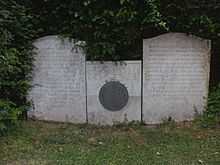Tardebigge
| Tardebigge | |
 St Bartholomew's church |
|
 Tardebigge |
|
| Population | 3,044 |
|---|---|
| OS grid reference | SP000690 |
| Civil parish | Tutnall and Cobley |
| District | Bromsgrove |
| Shire county | Worcestershire |
| Region | West Midlands |
| Country | England |
| Sovereign state | United Kingdom |
| Post town | BROMSGROVE |
| Postcode district | B60 |
| Dialling code | 01527 |
| Police | West Mercia |
| Fire | Hereford and Worcester |
| Ambulance | West Midlands |
| EU Parliament | West Midlands |
| UK Parliament | Bromsgrove |
|
|
Coordinates: 52°19′19″N 2°00′25″W / 52.322°N 2.007°W
Tardebigge is a village in Worcestershire, England.
The village is most famous for the Tardebigge Locks, a flight of 36 canal locks that raise the Worcester and Birmingham Canal over 220 feet (67 metres) over the Lickey Ridge. It lies in the historic county of Worcestershire.
Toponymy
The etymology of the name is uncertain. Several theories exist on the origins, but they remain largely disputed. One such theory[1] suggests that the name Tardebigge means ‘tower on the hill’.
The name Tærdebicga (whose dative case is Tærdebicgan) does not appear to have any likely meaning in Anglo-Saxon or Celtic or any other likely known language, and may be a stray survival from whatever aboriginal (perhaps Pre-Indo-European) language was spoken in England before the Celts came.
History
Tardebigge was once a much greater township, which included much of Redditch, including the modern day town-centre. Its name was recorded twice in a will as Anglo-Saxon æt Tærdebicgan.
Records of the parish begin in the late 10th century. Tardebigge was bought by the Dean of Worcester for his Church from King Ethelred the Unready. In the later Dark Ages there were battles fought between Ethelred's son Edmund Ironside and the Cnut the Dane.
In the 12th century, the parish was granted to Bordesley Abbey, a Roman Catholic monastery. For three hundred years the area remained in the Church's possession. In 1538 the Roman Catholic Church was disestablished by King Henry VIII, and the area became the possession of The Crown, until under an arrangement with Henry, the possessions of Bordesley Abbey passed to Andrew Lord Windsor, and therefore to the stewardship of the Earl of Plymouth at adjacent Hewell Grange. The land was gradually managed and sold off by the Earl; it was not until the mid 19th century that the parish of Tardebigge began to dissolve and the modern boundaries began to appear.
St Bartholomew's Church
The local parish church of St Bartholomew by Francis Hiorne of 1777 contains several monuments to the Earls of Plymouth who lived at adjacent Hewell Grange. Several members of the earls' families are buried in the cemetery of St Bartholomew's, including Robert George Windsor-Clive, 1st Earl of Plymouth, GBE, CB, PC (1857–1923) and his parents-in-law, Sir Augustus Berkeley Paget, GCB (1823–1896) and Walburga, Lady Paget (1839–1929), the diarist, writer and friend of Queen Victoria.


Economy
Worcester and Birmingham Canal
The village contains the Tardebigge Locks, a flight of 36 canal locks that raise the Worcester and Birmingham Canal over 220 feet (67 metres) over the Lickey Ridge.
Building material
The area was well known for the manufacture of bricks during the 18th and 19th century. There is little industry in the village remaining, apart from minor canal narrow boat repairing works.
Fruit and cider
The area become predominately a fruit growing area until the end of the 20th century with the famous Tardebigge orchards supplying produce to the Birmingham conurbation. Most of these orchards were grubbed up in the 1970s and 1980s with the last orchard being removed in 2000, when cheaper imported fruit replaced the home grown produce. The only orchard planted recently is the small orchard of Tardebigge Cider.
Tardebigge Cider is a craft cider maker based in Tutnall, about a mile from the church. The cidermaker Steve Cooper planted a mixed orchard of traditional apple varieties of about 100 trees in 1995. The varieties are primarily Dabinett, Michelin, and Harry Masters Jersey with a few culinary varieties included along with some pears, Moorcroft and Worcester Black. The fruit from these trees and other Worcestershire fruit go to make about 1,000-1,500 gallons of high quality cider which is only sold locally.
See also
- Tardebigge Engine House
- Hewell (HM Prison)
References
- ↑ http://www.tardebigge.f9.co.uk/church/history.htm Tardebigge church website
| Wikimedia Commons has media related to Tardebigge. |
| ||||||||||||||